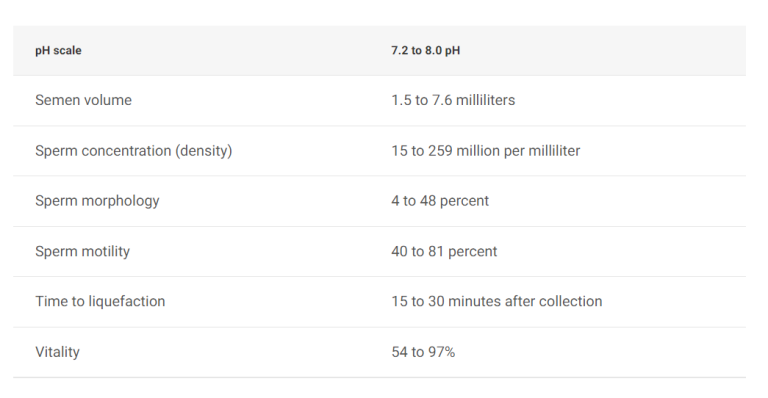- Global shipping from each location
Male Fertility and Testing
Male infertility affects an average of 25% of men, so if you struggle, you are not alone. A “normal” sperm count ranges from 15 Million to more than 200 million per ml of sperm. On average, there can be between 2ml -5ml per ejaculation. If there is less than 15 million/Ml or 39 million per ejaculate, you have a low sperm count.
Low doesn’t mean any. The count may be low, but the sperm could have fantastic motility.
There are 2 ways to start; firstly, you can go for a Sperm Analysis which can be done with a GP referral or privately through self-requested testing with labtests
This test will look at the volume, the number of sperm, and the motility of the sperm.
Some men feel ashamed or nervous to go to a clinic, and while there is no need because 25% of men struggle with fertility, there is the option to do an at-home test which usually can only tell you the sperm count. However, there is now a product that measures quality too, called SwimCount you can find more information here. You can buy these from our online store or at pharmacies.
A sperm analysis is not the only way to check your fertility. It is recommended you get some bloodwork done and even a physical check-up which would need to be done by a GP (General Practitioner).

Blood tests: These assess hormone levels, including testosterone, which can impact sperm production. They also help identify genetic factors such as Y chromosome abnormalities, which can affect sperm production.
Imaging tests: Noninvasive imaging techniques like ultrasound examine the testicles and other reproductive structures. They help identify blockages that may prevent the release of sperm into the semen, providing further diagnostic clarity.
